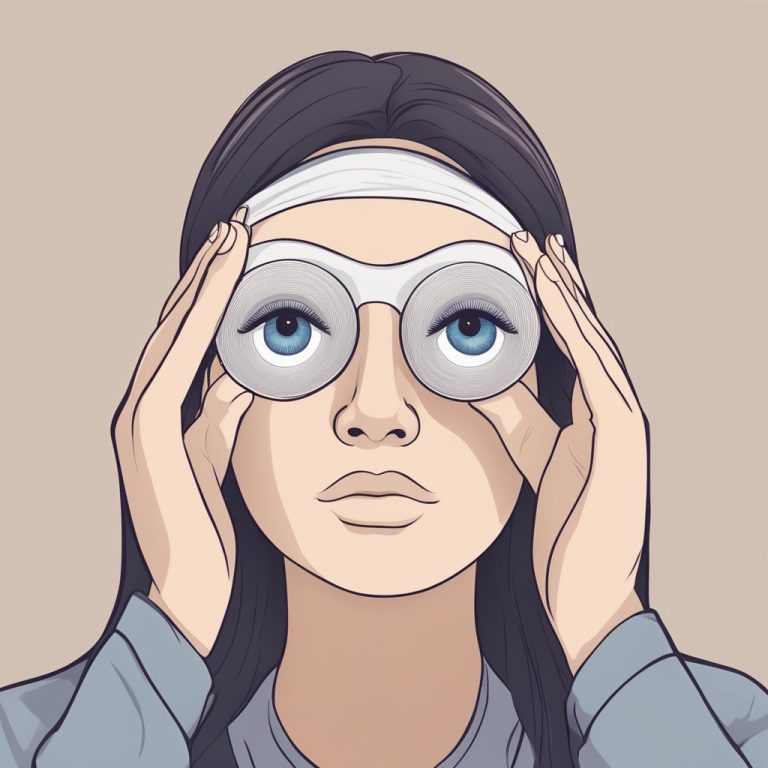Dark Brown Eyes in the Sun: How to Protect Them from Harmful UV Rays
Dark Brown Eyes in the Sun: How to Protect Them from Harmful UV Rays

If you have dark brown eyes, you may have noticed that they look different in the sun. Brown eyes are the most common eye color in the world, and they are also the most protective against the sun’s harmful rays.
Melanin, the pigment that gives color to our skin, hair, and eyes, is responsible for this protection. The more melanin you have, the darker your eyes will be, and the better they will be at shielding your eyes from UV radiation.
Understanding dark brown eyes and their relationship with the sun is important for maintaining healthy eyesight. Sun exposure can cause changes in the color and appearance of brown eyes, and it can also lead to photokeratitis, a painful condition that can cause temporary blindness.
Wearing sunglasses that block both UVA and UVB rays is essential for protecting your eyes from the sun’s harmful effects.
Key Takeaways
- Dark brown eyes have increased melanin content, providing protection against UV radiation and improved vision in bright conditions.
- Sun exposure can cause changes to the color and appearance of brown eyes, but also lead to photokeratitis.
- Wearing sunglasses that block both UVA and UVB rays is essential for protecting your eyes from the sun’s harmful effects.
Understanding Dark Brown Eyes
If you have dark brown eyes, you may be curious about the genetics and pigmentation that make your eyes unique. In this section, we will explore the science behind dark brown eyes and what makes them different from other eye colors.
Genetics of Eye Color
Eye color is determined by a combination of genes inherited from your parents. The genes that control eye color are located on chromosome 15 and 19.
Several genes play a role in determining eye color, including OCA2, HERC2, ASIP, IRF4, SLC24A4, SLC24A5, SLC45A2, TPCN2, TYR, and TYRP1. These genes control the production and distribution of melanin in the iris, which gives the eye its color.
Melanin and Pigmentation
Melanin is a pigment that gives color to the skin, hair, and eyes. It is produced by cells called melanocytes, which are located in the iris of the eye.
The amount and distribution of melanin in the iris determine the color of the eye. Dark brown eyes have a high concentration of melanin, while light-colored eyes have less melanin.
Commonality and Distribution
Dark brown eyes are the most common eye color in the world, with over 55% of the world’s population having brown eyes. Brown eyes are especially common in people of African, Asian, and South American descent. However, brown eyes can also be found in people of European descent.
In rare cases, people may have heterochromia, which is when each eye is a different color. This can occur due to a genetic mutation or injury. Amber eyes and gray eyes are also rare eye colors that are caused by variations in the amount and distribution of melanin in the iris.
Dark Brown Eyes and Sun Exposure
If you have dark brown eyes, you might think that you are less susceptible to eye damage from the sun’s harmful UV rays. However, this is not entirely true. While dark brown eyes have more melanin than lighter colored eyes, they are still vulnerable to the effects of sun exposure.
Effects of UV Rays on Eye Health
UV rays can cause a variety of eye problems, including cataracts, macular degeneration, and even eye cancer. Prolonged exposure to UV radiation can also lead to photophobia, light sensitivity, and vision loss.
In addition, people with conditions such as diabetic retinopathy, glaucoma, or Fuchs heterochromic iridocyclitis may be more sensitive to the effects of UV radiation.
Protective Measures Against Sunlight
To protect your eyes from the harmful effects of the sun, you should take some preventive measures.
One of the most effective ways to protect your eyes is to wear UV-blocking sunglasses. Look for sunglasses that block 100% of both UVA and UVB radiation.
You can also consider sunglasses with anti-glare coatings or prescription sunglasses.
In addition to wearing sunglasses, you can also protect your eyes by wearing wide-brimmed hats or staying in the shade during peak sunlight hours.
If you are taking medications that make your skin more sensitive to sunlight, you should also take extra precautions to protect your eyes.
Frequently Asked Questions
What color do brown eyes appear to be when exposed to sunlight?
Brown eyes appear to be a lighter shade of brown or amber when exposed to sunlight. This is due to the way that light interacts with the melanin in the iris. The increased light causes the iris to expand, which in turn causes the color of the eyes to appear lighter.
Why do brown eyes sometimes look lighter in the sun?
Brown eyes look lighter in the sun due to a phenomenon called the Tyndall effect. This effect occurs when light is scattered by the particles in the iris, causing the iris to appear lighter in color.
This effect is more pronounced in people with lighter colored eyes, but it can also be seen in people with dark brown eyes.
Are dark brown eyes more sensitive to sunlight than lighter colored eyes?
No, dark brown eyes are not more sensitive to sunlight than lighter colored eyes. However, people with lighter colored eyes are more susceptible to sun damage and may be at a higher risk for developing eye diseases such as cataracts or macular degeneration.
What causes the color change in brown eyes under sun exposure?
The color change in brown eyes under sun exposure is caused by the increased production of melanin in the iris. Melanin is a pigment that is responsible for the color of the skin, hair, and eyes. When the eyes are exposed to sunlight, the body produces more melanin to protect the eyes from UV radiation.
How does sunlight enhance the appearance of brown eyes?
Sunlight enhances the appearance of brown eyes by causing the iris to expand and allowing more light to enter the eye. This makes the eyes appear brighter and more vibrant.
Additionally, sunlight can cause subtle changes in the color of the eyes, making them appear more golden or amber in color.
Is there any scientific explanation for why brown eyes might look magical in the sun?
There is no scientific explanation for why brown eyes might look magical in the sun.
Many people find the warm, golden tones of brown eyes to be particularly striking in sunlight. This may be due to the way that the light interacts with the melanin in the iris, creating a unique and captivating effect.






